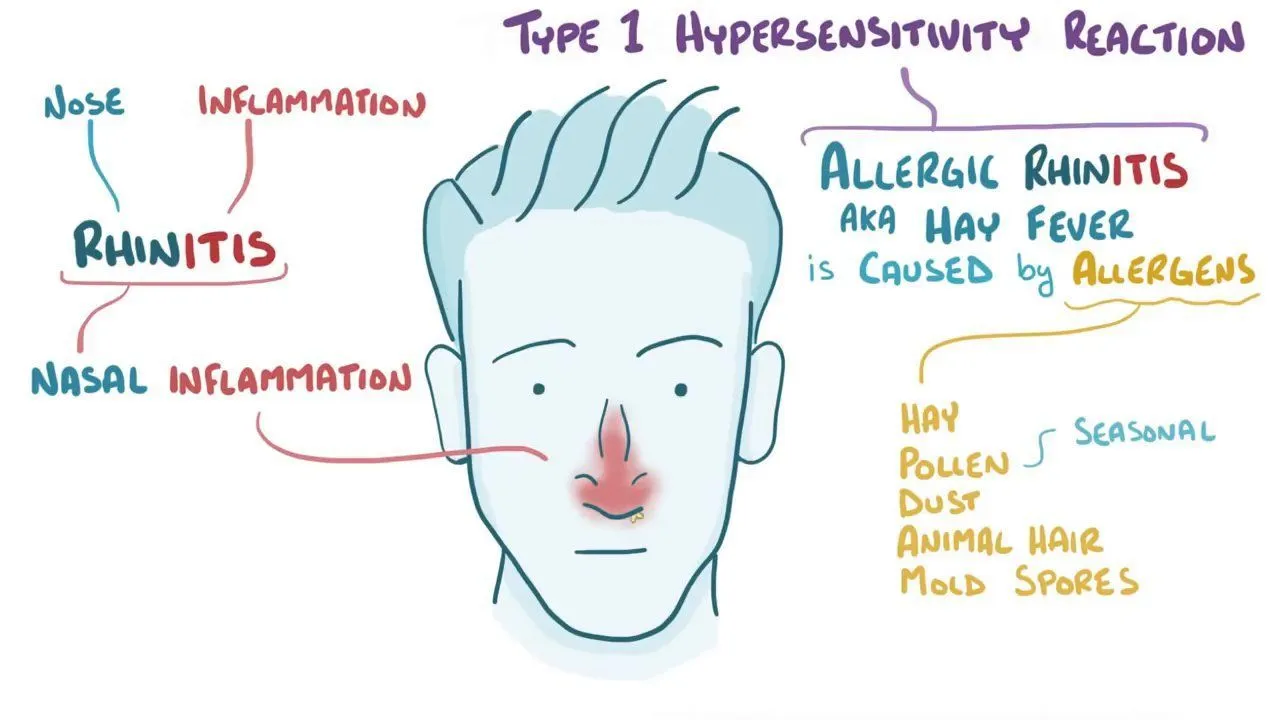What is Honeymoon Rhinitis?
Honeymoon rhinitis, often mistaken for a common cold or seasonal allergies, is a temporary condition that can affect newly married couples. It’s characterized by a collection of symptoms primarily affecting the nasal passages, and it typically appears shortly after the wedding or during the honeymoon. While the exact cause is not always straightforward, several factors, including environmental changes, stress, and hormonal fluctuations, are often implicated. Understanding the symptoms, causes, and potential treatments of honeymoon rhinitis can help you manage this condition and ensure a more comfortable and enjoyable start to married life. It is important to remember that this condition is usually temporary, and with proper care, symptoms can be effectively managed, allowing couples to fully savor their special time together.
Honeymoon Rhinitis The Top 5 Symptoms
Recognizing the symptoms of honeymoon rhinitis is the first step in managing the condition. The symptoms can vary in severity from person to person, but they often manifest as a combination of nasal and eye-related issues. While the symptoms can be bothersome, they are generally not indicative of a serious medical condition and typically resolve within a few weeks with proper care and attention. If symptoms persist or worsen, consulting a healthcare professional is advisable to rule out other potential causes and receive personalized advice.
Nasal Congestion
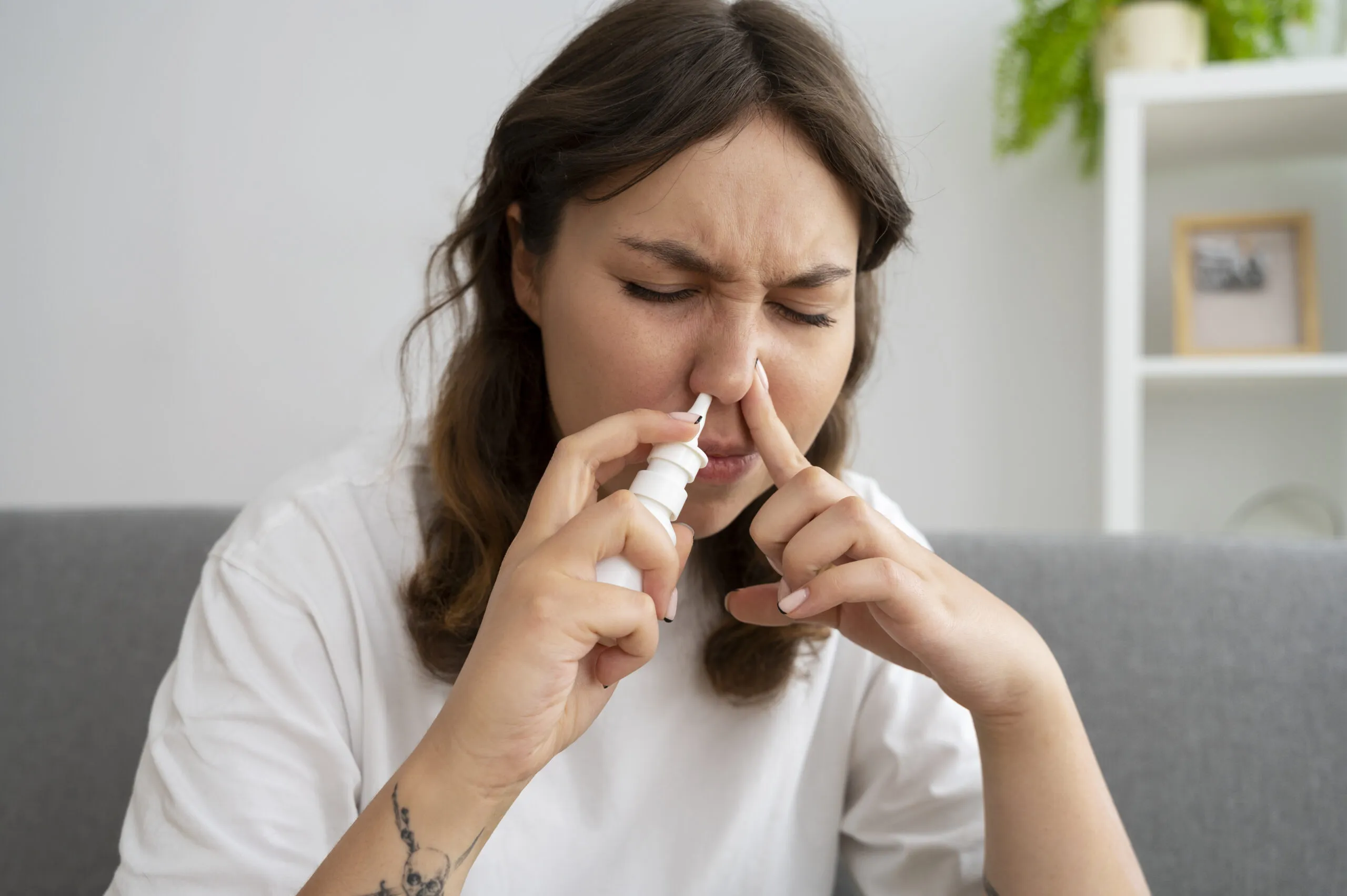
Nasal congestion, or a stuffy nose, is a common symptom of honeymoon rhinitis. This occurs when the nasal passages become inflamed and swollen, leading to a feeling of blockage. This can make breathing through the nose difficult and may force you to breathe through your mouth, especially at night. This symptom can also contribute to snoring, which can disrupt sleep for both partners. Nasal congestion is often caused by the inflammation of the blood vessels in the nasal passages, which can be triggered by allergens, irritants, or hormonal changes associated with this condition. It can range from mild to severe, impacting daily activities and overall comfort.
Runny Nose
A runny nose, or rhinorrhea, is another prevalent symptom, characterized by the excessive production of clear, watery mucus. This can lead to frequent nose blowing and the need for tissues throughout the day. The increased mucus production is often a response to inflammation within the nasal passages, caused by various triggers associated with honeymoon rhinitis. The constant dripping can be irritating and, if left unchecked, may lead to skin irritation around the nostrils. Managing a runny nose involves keeping the nasal passages clear, using tissues gently, and potentially employing over-the-counter medications to reduce mucus production.
Sneezing
Frequent sneezing is a common and often unavoidable symptom of honeymoon rhinitis. Sneezing is the body’s natural way of expelling irritants from the nasal passages. Repeated sneezing can be a nuisance and can also lead to discomfort, particularly if it occurs in rapid succession. Sneezing can be triggered by allergens, irritants, or even changes in the environment, all of which are common during the honeymoon period. While sneezing itself is not harmful, it can contribute to other symptoms like nasal congestion and runny nose, exacerbating the overall discomfort experienced.
Itchy Nose and Eyes
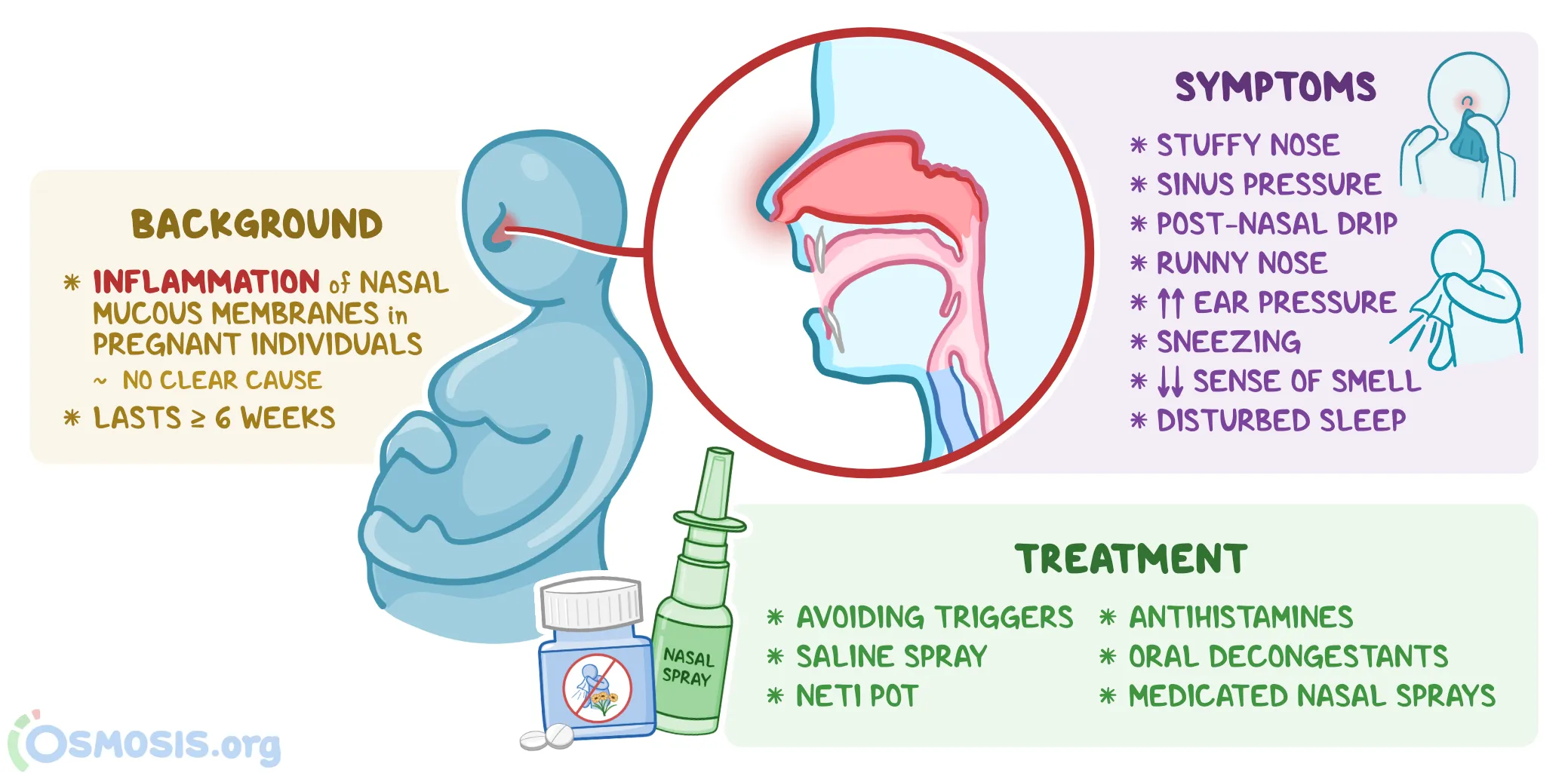
Itching sensations in the nose and eyes are frequently reported symptoms. The itching in the nose can lead to a constant urge to scratch, which can further irritate the nasal passages. Similarly, the eyes may become itchy, watery, and red. These symptoms are often caused by the release of histamine, a chemical released by the body in response to allergens or irritants. Eye irritation might make it difficult to enjoy the scenery or participate in activities. It is important to avoid rubbing the eyes, as this can worsen the irritation, and use eye drops to soothe the itching.
Postnasal Drip
Postnasal drip, the sensation of mucus trickling down the back of the throat, is another potential symptom. This can cause a tickle in the throat, leading to coughing or a constant need to clear the throat. The excess mucus can also cause a sore throat and, in some cases, lead to nausea or bad breath. Postnasal drip occurs when the nasal passages produce more mucus than normal, which then drains down the back of the throat. This can be particularly bothersome at night, disrupting sleep and making it difficult to breathe comfortably.
Causes of Honeymoon Rhinitis
Understanding the underlying causes can help in managing honeymoon rhinitis symptoms. Several factors, often working in combination, can trigger this condition. Recognizing the triggers and making necessary adjustments can help to mitigate symptoms and improve comfort. Causes can be grouped into several categories, including exposure to allergens and irritants, hormonal changes, and stress or anxiety.
Allergens and Irritants
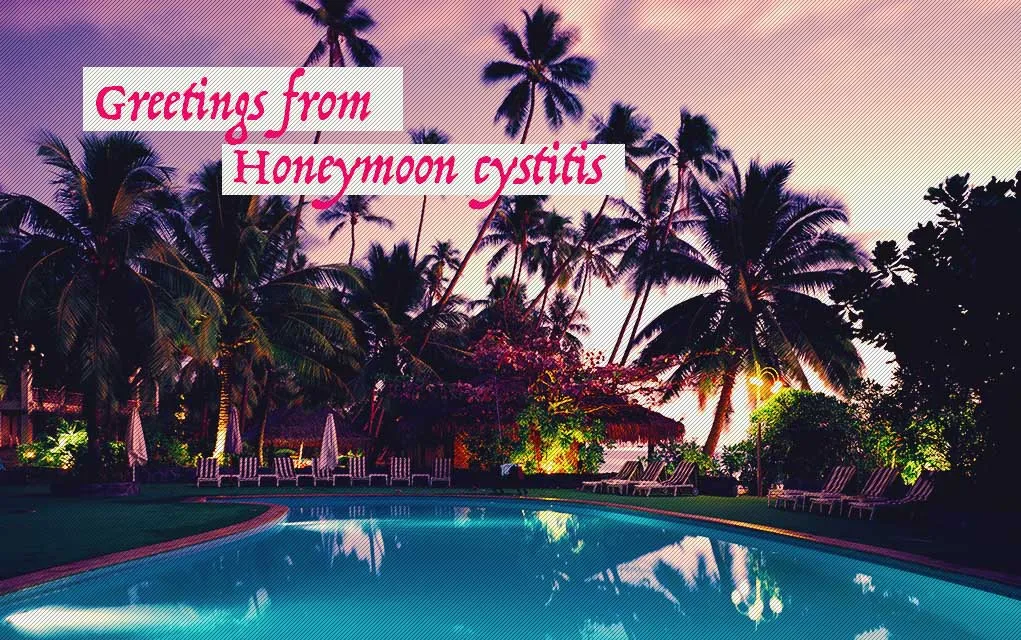
Exposure to allergens and irritants can be a significant trigger for honeymoon rhinitis. During the honeymoon period, couples may be exposed to new environments, such as hotels, resorts, or different climates, which may contain allergens like dust mites, mold spores, or pollen. Irritants such as cigarette smoke, perfumes, or strong cleaning products can also contribute to symptoms. Minimizing exposure to these triggers can help to reduce or prevent the onset of symptoms. It’s crucial to be mindful of the environment and take steps to limit contact with potential irritants and allergens.
Hormonal Changes
Hormonal changes, particularly those associated with the wedding and immediate post-wedding period, can also play a role. The body experiences significant hormonal fluctuations as it adjusts to a new marital status and the associated emotional and physical changes. These hormonal imbalances can affect the nasal passages, making them more sensitive and prone to inflammation. Furthermore, increased levels of stress hormones, such as cortisol, can also exacerbate symptoms. Understanding these hormonal influences can help in managing the condition and anticipating its onset.
Stress and Anxiety
Stress and anxiety, both common during wedding preparations and the honeymoon itself, are often linked to honeymoon rhinitis. The excitement, anticipation, and potential travel-related stress can trigger the immune system to react, leading to inflammation of the nasal passages. Anxiety can also heighten sensitivity to environmental factors, increasing the likelihood of experiencing symptoms. Practicing stress-reduction techniques, such as deep breathing exercises or meditation, can help mitigate the impact of stress on the condition. Addressing the underlying stress and anxiety is key in managing and preventing symptoms.
Diagnosis and Treatment of Honeymoon Rhinitis

While honeymoon rhinitis can be uncomfortable, effective treatments and management strategies are available. Often, simple measures and over-the-counter medications are sufficient to alleviate symptoms. However, in cases where symptoms persist or worsen, it is important to consult a healthcare professional to rule out other conditions and develop a personalized treatment plan. Here are some guidelines for managing the condition.
Consulting a Healthcare Professional
If symptoms persist or worsen, consulting a healthcare professional is essential. A doctor can accurately diagnose the condition and differentiate it from other potential causes, such as a cold or seasonal allergies. They may perform a physical examination and ask about your symptoms, medical history, and potential exposures. They might also recommend allergy testing to identify specific triggers, allowing for more targeted treatment. Getting a professional diagnosis ensures that you receive the most appropriate and effective treatment plan for your situation.
Symptom Management
Managing the symptoms is key to feeling more comfortable during your honeymoon. Several methods can provide relief. One useful strategy is to stay hydrated by drinking plenty of water, which helps thin the mucus and reduce nasal congestion. Using a humidifier to add moisture to the air can help soothe the nasal passages, particularly in dry environments. Gently rinsing the nasal passages with a saline solution can also help to remove irritants and alleviate congestion. Rest is also important to allow the body to recover and reduce the impact of stress and anxiety.
Over-the-Counter Medications

Several over-the-counter (OTC) medications are available to provide relief from the symptoms of honeymoon rhinitis. Antihistamines can help reduce sneezing and itching. Decongestants can relieve nasal congestion. Nasal sprays, both saline and corticosteroid, can help soothe inflamed nasal passages and reduce inflammation. It is important to follow the instructions on the packaging and, if you have any underlying health conditions or take other medications, consult a pharmacist or healthcare provider before using them. Over-the-counter medicines can be valuable, but it’s also wise to use them as directed to avoid potential side effects.
Home Remedies
In addition to medications, several home remedies can provide relief from the symptoms of honeymoon rhinitis. Using a saline nasal rinse or spray can help to clear nasal passages and remove irritants. Applying a warm compress to the face can help soothe congestion and relieve pressure. Drinking warm liquids, such as herbal tea with honey, can help to soothe the throat and provide comfort. Getting plenty of rest and avoiding irritants can also aid in recovery. These simple home remedies can often offer significant relief and are a great first step in managing symptoms.
Preventing Honeymoon Rhinitis
Preventing honeymoon rhinitis involves addressing potential triggers and adopting healthy lifestyle practices. Proactive measures can significantly reduce the likelihood of experiencing symptoms, allowing you to enjoy your honeymoon to the fullest. Several steps can be taken to minimize exposure to triggers and support overall health.
Minimizing Exposure to Triggers
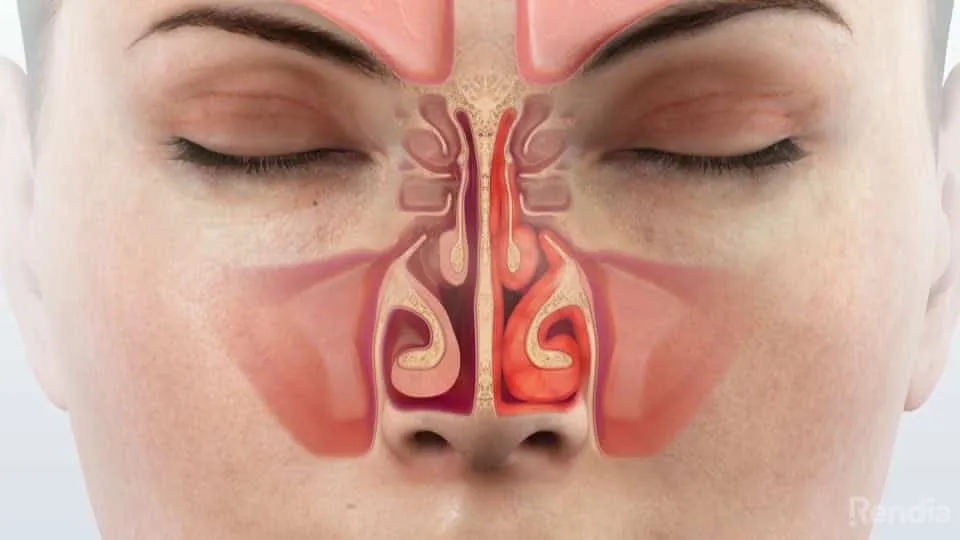
Minimizing exposure to potential triggers is a crucial step in preventing honeymoon rhinitis. This includes being mindful of your environment, especially when traveling. If you know you are sensitive to specific allergens, take precautions, such as bringing your own pillow or using allergen-proof bedding. Avoiding environments with high levels of pollen, dust, or other known irritants can also help. Being vigilant about potential irritants and allergens and taking steps to limit your exposure can dramatically reduce the likelihood of triggering symptoms and allow you to better enjoy your honeymoon.
Maintaining a Healthy Lifestyle
Maintaining a healthy lifestyle can strengthen the immune system and help prevent or reduce the severity of symptoms. This includes eating a balanced diet rich in fruits, vegetables, and whole grains, which provide essential vitamins and minerals. Regular exercise can boost your immune system and reduce stress. Getting enough sleep is crucial, as sleep deprivation can weaken the body’s defenses. Avoiding smoking and limiting alcohol consumption can also contribute to overall health. By adopting these healthy habits, you can better equip your body to cope with potential triggers and reduce your susceptibility to honeymoon rhinitis.
In conclusion, honeymoon rhinitis is a temporary but bothersome condition that can affect newly married couples. Understanding the symptoms, identifying the causes, and implementing effective treatments and preventive measures are key to managing the condition. While the symptoms can be uncomfortable, remember that with proper care, honeymoon rhinitis is generally temporary, and couples can look forward to enjoying a comfortable and memorable start to their married life.
